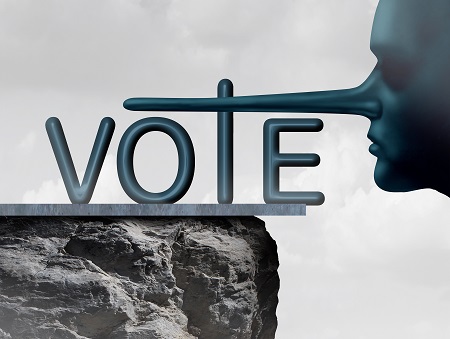While US citizens have always had disagreements about what policies are best, most people have historically trusted and respected the process we use to determine which policies prevail. Unfortunately, that trust has deteriorated in recent years. It has fallen even more in the aftermath of the Covid-19 pandemic, which will likely still be active as the general election polls open later this year.
As of late April, only 59% of voters think the 2020 election will be conducted even somewhat fairly and accurately.

This is a staggering statistic for a country that prides itself on the rule of law. The fewer people who believe their legislators were legitimately elected, the less legitimacy the legislative process has. The United States is only 10% away from a majority of its citizens believing that the country’s elections are unfair or inaccurate (or both).
For investigative agencies charged with election integrity, this makes the 2020 election one of the biggest challenges they’ve ever faced. While many of these agencies are charged with keeping elections free and fair, they’re also supposed to ensure citizens believe elections are free and fair. And when so many voters believe the candidates are cheating the system, it falls to these officials to demonstrate that the rules are being enforced fairly and equitably.
Further complicating the matter, twenty-six states have partisan elections for chief elections administrator. In most of these states, this responsibility falls to the Secretary of State. In ten other states, the governor or legislature appoints an elections head. Partisan-elected administrators further erode confidence in the system. This is especially true in situations where the Secretary of State is managing the oversight of their own election to higher office, as recently happened in Georgia.
This problem certainly isn’t getting any help from the United States Senate. The Federal Elections Commission was powerless to enforce elections law for the 37 weeks prior to last Tuesday. That’s because it lacked a quorum, with only two of five commissioner seats filled. Last Tuesday’s Senate Confirmation vote of an additional commissioner still leaves the commission with only 3 members, weakening its legitimacy if not its legal enforcement powers.
All of this puts more responsibility than ever on state ethics commissions. While they don’t technically oversee elections in most cases, they do ensure that the incumbents aren’t abusing their position to illegally trade influence for campaign contributions or public support. This helps to put political challengers on a more equal footing.
And while that 59% confidence statistic isn’t great for election oversight officials, it isn’t great for elected officials either. Incumbents have always used the benefits of their office to help them secure re-election to the maximum extent allowed by law. But the rapid drop of confidence in the electorate might signal that they’re fed up not just with their own representative, but with the entire political process. Historically, that doesn’t end well for any of the political leaders, regardless of party.
To learn how CMTS can help your investigative office handle cases more efficiently, call us at 855-667-8877 or email us at Team_CMTS@securecasemanagement.com.
